Upstream Arts and the Power of Unique Abilities
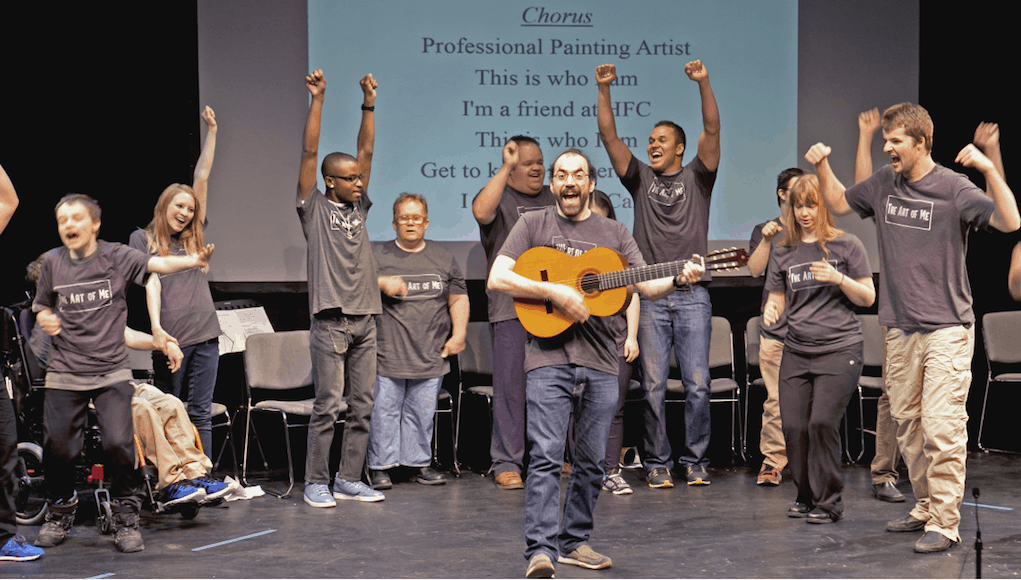
When Ryan Hoag says one of his favorite things to do is to serve as a teacher at Upstream Arts, he’s not kidding around.
Ryan has had his fair share of unique experiences—being drafted by the Oakland Raiders (and spending seven years in the league), appearing on The Bachelorette, playing three college sports, serving as an elementary school teacher and more. However, he finds and shares his greatest joy day-to-day is working with students with “unique abilities” at Upstream Arts.
While the formal website description for Upstream Arts does use the term “disability” (Upstream’s mission is to “use the power of the creative arts to activate and amplify the voice and choice of individuals with disabilities”), that language is largely used externally to provide clarity to the common reader.
In order to achieve that mission, Ryan and his colleagues live by a perspective that focuses on unique abilities (rather than on disabilities). Ryan notes, ‘We start by assuming ability for every person with whom we work. We like to focus on what people CAN do rather than what they can’t do. The arts provide a unique way to bring that out in others.”
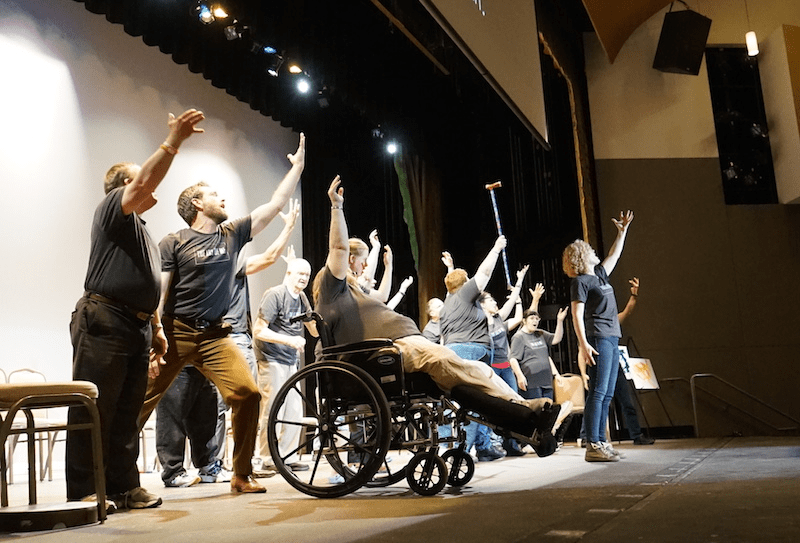 Upstream has many stories of parents and kids whose first authentic communication came as a result of a song. For example, one young person had never engaged in a spoken conversation but would engage in deeper communication if conversations were sung.
Upstream has many stories of parents and kids whose first authentic communication came as a result of a song. For example, one young person had never engaged in a spoken conversation but would engage in deeper communication if conversations were sung.
Ryan, reflecting on why he loves his work, said, “I’ve always had a desire to help others, and I especially love to help people with unique abilities. The way I’m intrinsically wound, I need to be impacting others in a positive way as best I can.” He went on to say, “I have always wanted to teach kids that other teachers either didn’t want to—or more likely, didn’t know how to—teach because some kids don’t always get the same type of treatment general education students get.”
With such a strong focus on social-emotional learning (SEL) in so many schools today, there are lessons about focusing on strengths that we can all take from him as we work with all students to develop social, emotional, and communication skills.
 Strategies for Focusing on Unique Abilities in All
Strategies for Focusing on Unique Abilities in All
In addition to serving as a Teaching Artist at Upstream Arts, Ryan is certified as an elementary school teacher, is a certified tennis teaching professional, and has coached numerous sports at all levels. When I asked him if there are common threads he finds to be true across all of his teaching and coaching, he replied with:
- Assume ability for every single kid. When you have the moniker of disability, people assume you can’t or you don’t know an answer, even if you can or do.
- Help every student find and share his/her voice. Ryan says, “Give a student a voice even if he or she does not use traditional means of communication. If they use a DynaVox and there’s a long processing time and it’s super uncomfortable and if it’s taking a long time – that’s ok. We all process at different rates. Get over it. Once you give them that moment to shine, maybe it’ll be a less stressful situation for everybody.”
- Give the best you can. Ryan’s coaching philosophy is the same as his teaching philosophy, and it boils down to taking the time you have to do the best you can for every single person.
- Show mutual respect. If you are a teacher the kids’ respect, they feel a sense of security and even an obligation. Kids have said, “I know I need to step it up because I don’t want to let Mr. Hoag down” Likewise, Ryan said, “I knew I’d be letting them down if I didn’t step it up myself.”
- See the possibility in people. For kids to ascend to a level they’re capable, we need to help them look forward and find the avenues where they can succeed.
- Recognize that we all respond differently to different people. Be ready for them to respond differently to you than the other teacher down the hall. Let each student make his or her own connection with you.
- Empower people. The concept of empowering aligns with the Upstream mission that focuses on activating and amplifying all voices.
- Start where your students are and practice empathy. Ryan described how each day at Upstream they do introductions and have a unique prompt. For example, on a day that we were describing how we felt, I said “Hello, my name is Ryan. Today I’m feeling ‘tornado,’ and I did a swirling movement with my body and explained that I slept terribly and had an argument with my mom,” Doing these sorts of activities allows us to practice empathy and expression. Maybe it’s the first time they’ve heard and been heard.
About Upstream Arts
Upstream uses curriculum-based arts programming to help people with disabilities develop social and communication skills for success in school, work, and life. On a day-to-day basis, it lives out its mission by incorporating its values of collaboration, creativity, and quality into all aspects of its work.
In the programs, local professional artists of various artistic disciplines and backgrounds—actors, musicians, poets, dancers, visual artists—teach the fundamentals of their art form through engaging activities that allow for self-expression, dialogue, and group work.
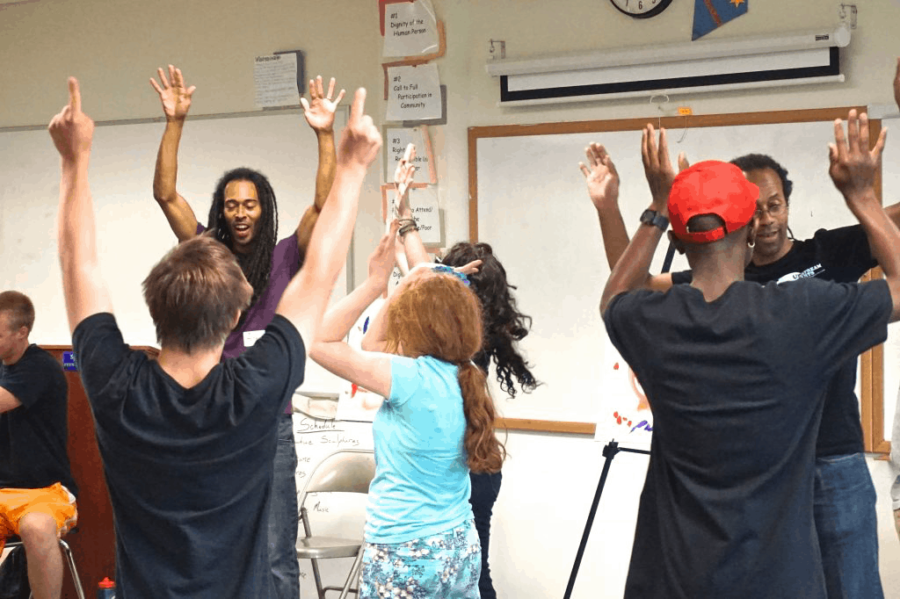 Upstream is able to work with individuals of all ages with cognitive, developmental, emotional, and behavioral and physical disabilities by welcoming the students into multidisciplinary arts residencies.
Upstream is able to work with individuals of all ages with cognitive, developmental, emotional, and behavioral and physical disabilities by welcoming the students into multidisciplinary arts residencies.
Students meet on a weekly basis for a course of 6 to 18 weeks, often in settings familiar to them where they receive other services.
School-Based Programs
To further their outreach, Upstream aligns with Minnesota Academic Standards for the Arts and partners with local school districts to offer its programming to Special Education departments serving students from birth up to 21 years of age. Upstream collaborates with several school districts in the state of Minnesota, but has a particularly well-developed relationship with Minneapolis Public Schools (MPS), administering more than 30 programs every year in that district alone.
“Historically, artists have played a role in bringing emotional truth to institutions. The arts have the potential to break new ground, to energize our personal connections, and to open new doors for invention and practice. These are the things that Upstream Arts is bringing to our services.”
– Rochelle Cox, Executive Director of Special Education, Minneapolis Public Schools
The school programming is not only aimed at developing students’ fundamental skills in a range of art forms, but it is also designed to develop essential learning skills in self-expression, social interaction, and group participation. In the Minneapolis school district, in particular, Upstream is able to modify program content to fit student need and classroom curriculum, as well as focus on skills essential for workplace readiness.
In addition to its focus on students, Upstream integrates professional development for teachers and staff at the schools, incorporating meetings throughout the duration of the program, evaluation tools, and companion curriculum.
Ryan even tolerated working with me this past summer! I experienced his unique ability to connect with, challenge and celebrate his students first-hand, and I know how I felt valued and inspired when Ryan coached me from a ‘unique ability’ perspective. I am touched both by Upstream’s commitment to serving all people through the arts and by Ryan’s unique ability to connect with others and focus on strengths.
This experience was deeply impactful in encouraging me to focus on identifying “unique abilities” in all those whom I meet and advocating for those who may need that focus most. I hope this story will encourage you to do the same.
For more, see:
- The Power of the Performing Arts: Music’s Message of Hope
- Innovation Mindset = Growth + Maker + Team Experiences
- Lessons for Life and Learning: 10 Messages Parents (and Teachers) Can Teach Kids
- Music Education: What Students Want, What the Workforce Needs
Stay in-the-know with all things edtech and innovations in learning by signing up to receive our weekly newsletter, Smart Update.



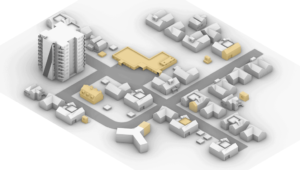
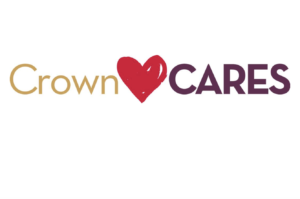
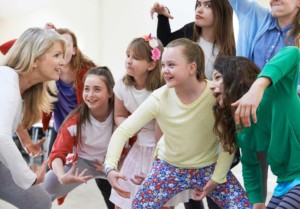
0 Comments
Leave a Comment
Your email address will not be published. All fields are required.